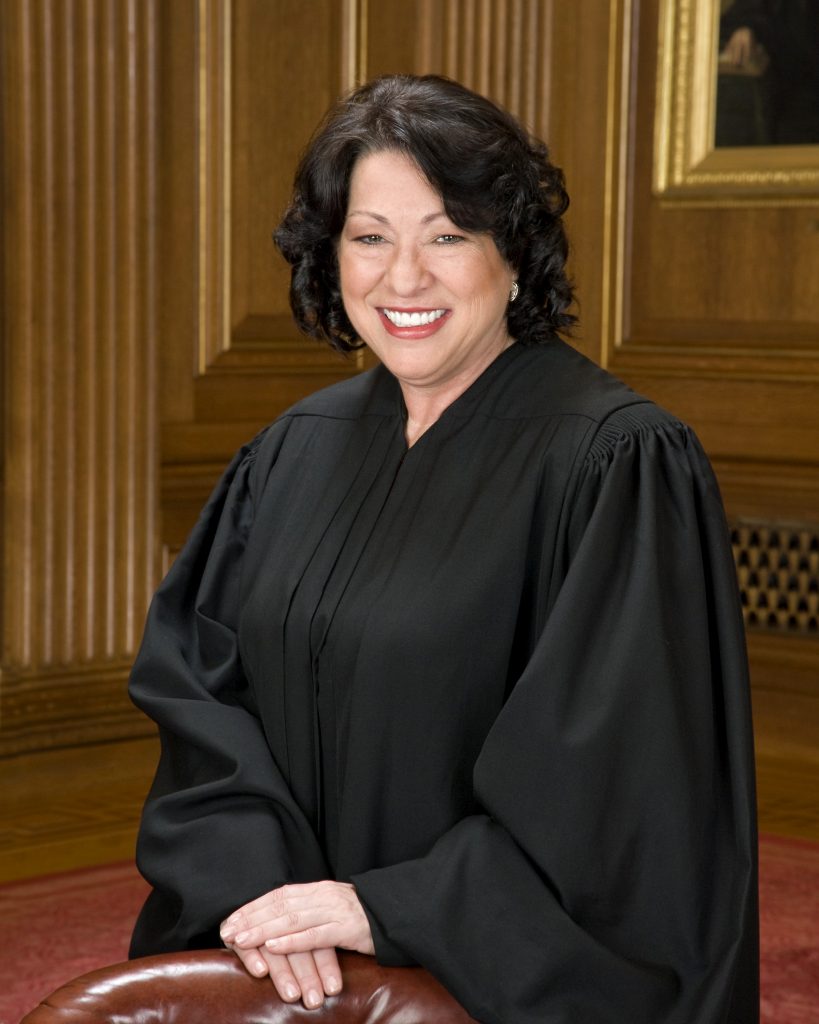By Lev Tsitrin
As the Supreme Court ruled, by a 6-to-3 majority, that presidents have absolute immunity for their official acts, Justice Sotomayor gasped for just enough air to write a dissent before (I guess) swooning in a paroxysm of disgust. “The court effectively creates a law-free zone around the president, upsetting the status quo that has existed since the founding,” she screamed in her “appalled dissent” — characterized as such by the New York Times

Her indignation strikes me as being rather selective. Apparently, in Justice Sotomayor’s view, not all “law-free zones” are created equal. I did not hear her kick and scream about the other “law-free zone” — the one which the federal judges built around themselves in the Pierson v Ray case that that gives federal judges absolute immunity even when they act from the bench “maliciously and corruptly” — the immunity not just from punishment, but from a trial itself.
“Immunity for me, but not for thee.” I am sure Justice Sotomayor loves her immunity, which allows her to adjudicate her own argument rather than that of the parties so as to arrive at the conclusion she wants to arrive at — though this clearly violates “due process” which forbids judges to act as parties to the case (in that situation, they must recuse themselves.)
Yet how else would 6-to-3 decisions be even possible? They simply cannot come about without this curious feature of judicial “process” in which judges judge judges’ own argument (a practice that goes back deep into antiquity — hence, the Latin moniker for this kind of judicial swindle — “sua sponte argument.”)
Unlike Justice Sotomayor, I did not see how the Trump case could go any other way without the justices acting as total and utter hypocrites, completely ignoring the legal protections with which they shielded themselves — the protections that place federal judges “above the law.”
This is not to say that hypocrisy is not part of justices’ game — but it would have taken matters too far if they gave presidents no immunity at all, leaving them to the mercy of the law. So they gave Trump some of what they gave to themselves. Some, but not all: they remanded the case back to the lower court to sift through Trump’s actions, separating the official ones from the unofficial — while back when I sued a bunch of federal judges, arguing that judges’ “sua sponte” lawyering in their decisions done on behalf of the government could not have possibly been a “judicial” and therefore, official act, they refused to even consider that question in court, and summarily dismissed my complaint. In remanding Trump’s case, they did not give Trump what they gave to themselves — the right to avoid a trial — but threw him just enough to fight back, to Justice Sotomayor’s chagrin.
Was it hypocrisy? Sure. Clearly, hypocrisy is a tool not just in politicians’ toolbox, but in Supreme Court Justices’ toolbox, too.
Justices keep telling us that they are not politicians. Time and again, as in Trump v US, we see them acting as political animals they really are. So much for the much-vaunted “judicial impartiality”!
Lev Tsitrin is the author of “Why Do Judges Act as Lawyers?: A Guide to What’s Wrong with American Law“
- Like
- Digg
- Del
- Tumblr
- VKontakte
- Buffer
- Love This
- Odnoklassniki
- Meneame
- Blogger
- Amazon
- Yahoo Mail
- Gmail
- AOL
- Newsvine
- HackerNews
- Evernote
- MySpace
- Mail.ru
- Viadeo
- Line
- Comments
- Yummly
- SMS
- Viber
- Telegram
- Subscribe
- Skype
- Facebook Messenger
- Kakao
- LiveJournal
- Yammer
- Edgar
- Fintel
- Mix
- Instapaper
- Copy Link







One Response
Grrrr….